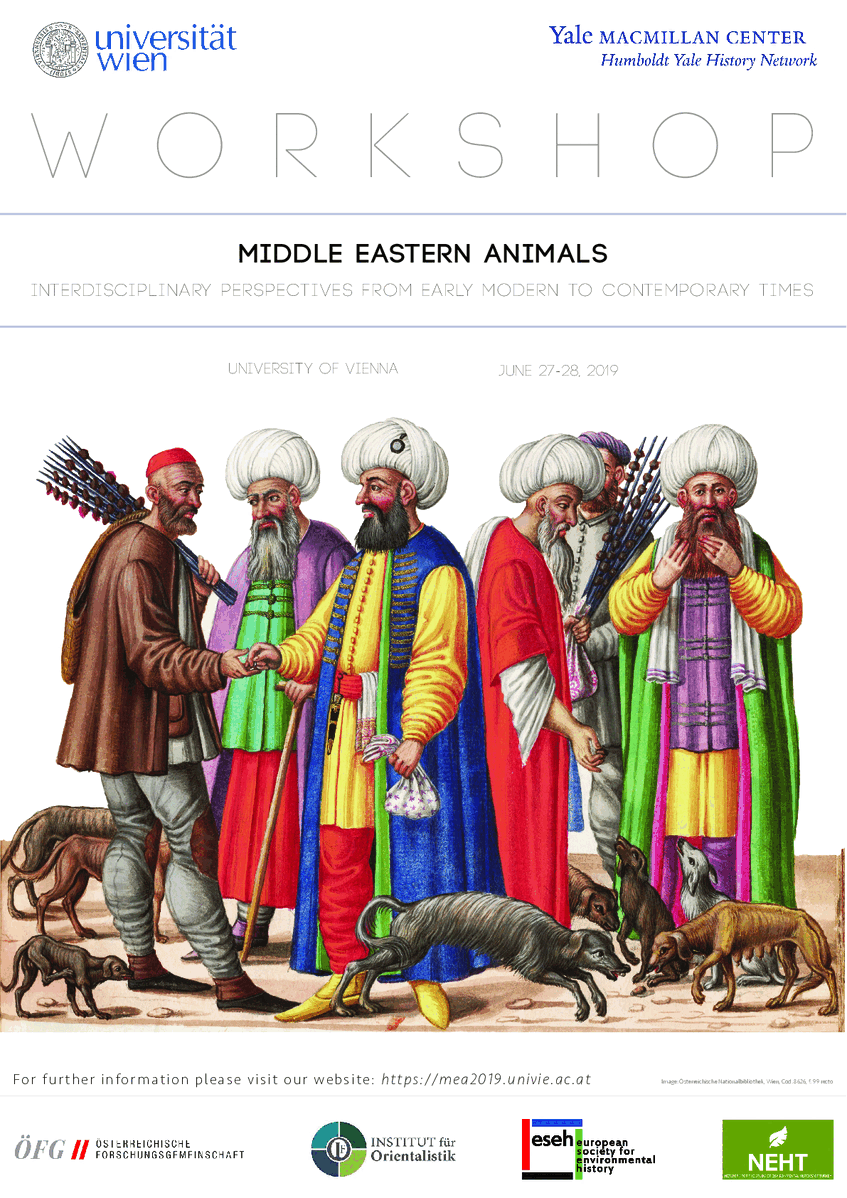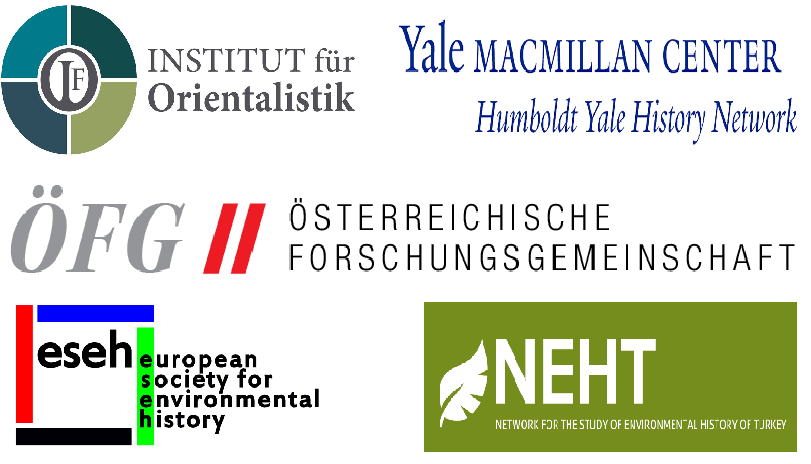Middle Eastern Animals: Interdisciplinary Perspectives from Early Modern to Contemporary Times

Workshop
Middle Eastern Animals:
Interdisciplinary Perspectives from Early Modern to Contemporary Times
University of Vienna, June 27-28, 2019
At the juncture of Africa, Europe, and Asia, the Middle East boasts deserts, mountains, steppes, valleys and river deltas. Across the region diverse mammals, reptiles, birds, and insects, as well as marine organisms and invertebrates, make their homes. The workshop “Middle Eastern Animals: Interdisciplinary Perspectives from Early Modern to Contemporary Times” will focus on this diversity and explore the role non-human animals have played throughout the history of the Middle East. It aims to convene and stimulate exchange between graduate students, early-career researchers, and professors across disciplines interested in animals and human-animal relations.
The workshop will take place at the University of Vienna on June 27-28, 2019. Our hope for the workshop is that our discussion will help to offer concrete feedback to all participants in order to make their work both individually stronger and to fit together better as an intellectual product with the other contributions. It is our intention to produce a themed journal issue from select contributions.
This workshop is not open to the general public, but only to active researchers. There is no participation fee, but pre-registration is required. Please contact Dr. Onur İnal (onur.inal@univie.ac.at) for registration or any further information.
The workshop is arranged with financial support from the Near Eastern Studies Department (Turkish Studies) of the University of Vienna, Humboldt Yale History Network, and Austrian Research Association (ÖFG) and endorsed by the European Society for Environmental History (ESEH) and Network for the Study of the Environmental History of Turkey (NEHT)
Conveners:
Yavuz Köse (University of Vienna, Near Eastern Studies Department)
Alan Mikhail (Yale University, History Department)
Onur İnal (University of Vienna, Near Eastern Studies Department)
Presenting participants*:
Nora Barakat (New York University – Abu Dhabi)
Horses and Headmen: The Politics of Taxing Livestock in Late Ottoman Syria
Ido Ben-Ami (Tel Aviv University)
What was it like to be a War-Horse of a Gazi?: The Animal Turn in Ottoman History
Irus Braverman (State University of New York - Buffalo)
The Persian Fallow Deer: Bridging Time and Nativeness in Contemporary Israel/Palestine
Semih Çelik (Koç University Istanbul)
Humans in Animalscapes: Reconstructing Animal-Human Interactions in Rural Anatolia (1700-1850)
Cihangir Gündoğdu (Bilgi University Istanbul)
Dogs Feared, Dogs Loved and Fancied: Human-Dog Relations in the Late Ottoman Empire
Donna Landry (University of Kent - Canterbury)
Ottoman Ecocriticism and Political Ecology: Horse-Human Relationships in Evliya Çelebi
Tamar Novick (Max Planck Institute for the History of Science)
On All Fours: Equines, Disease, Movement, and Control in 1940s Palestine
Gisela Procházka-Eisl (University of Vienna)
Clean and Dirty Animals in Ottoman Divan Poetry: The Case of Adanalı Süruri or „the Nightingale of my Imagination“ versus the „Shitty Nightingale”
Caterina Scaramelli (Yale University MacMillan Center)
Emergent Wetland Animals in Turkey
Kristen Stilt (Harvard Law School and Harvard Department of History)
Australian Animals in Middle Eastern Markets
Melis Süloş (City University of New York)
Infantalization of Pets in the Nationalist Discourse in the Early Twentieth Century Turkey
Dan Tamir (University of Zurich)
Conquest, Revival or Nothing Special? The (Re-)Introduction of Domesticated Animals to Modern Palestine
Sezai Ozan Zeybek (Forum Transregionale Studien Berlin)
Animals as Foes, Animals as Friends: Nation and Its Non-Humans
* alphabetized by last name

